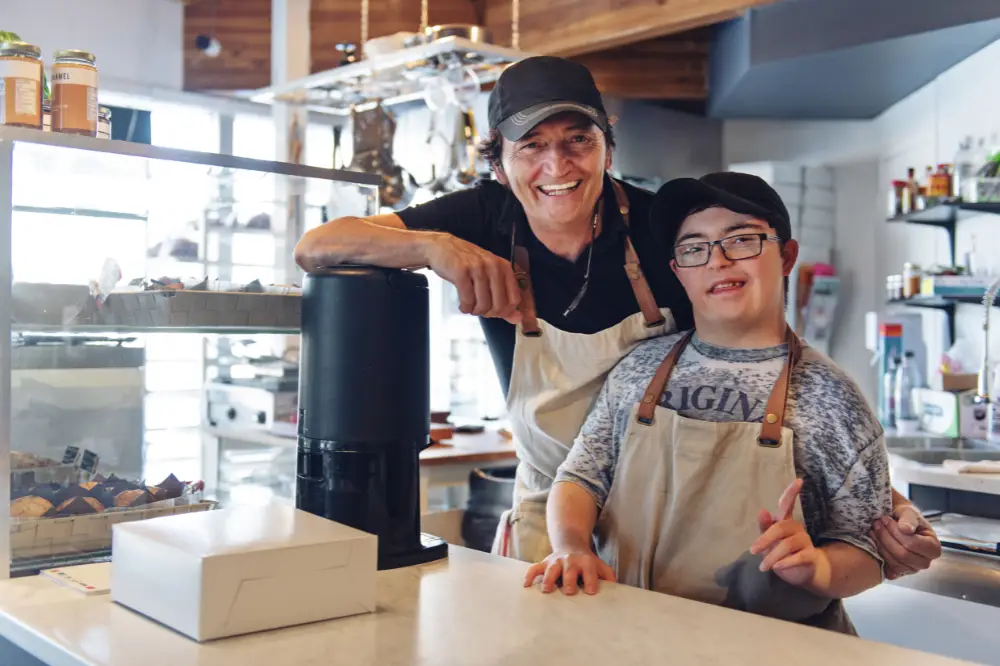While living with a disability often comes with unique challenges, but it’s essential to recognise that people with disability possess incredible strength, resilience, and the right to live a life filled with independence and fulfillment. Supported Independent Living (SIL) is a pathway that can pave the way for people to embrace empowerment and lead a life that aligns with their aspirations.
How can SIL make a significant impact on the lives of people with disability?
Understanding Supported Independent Living (SIL)
SIL is not just a service; it’s a philosophy that centers around people’s right to live independently while receiving the support they need. It’s about tailoring assistance to unique needs and preferences, promoting autonomy, and fostering a sense of belonging within the community.

Questions to Consider
What does independence mean to the person with disability? Take a moment to speak with the person and help them to reflect on what independence looks like in their life. What activities, routines, and decisions do they want to handle independently, and where do they envision receiving support?
Identifying a support network: Consider the people who provide support—family, friends, or professionals. How can this support be organised to align with the person’s goals? Are there specific tasks or areas where they would like more assistance?
Defining goals: Talk about short-term and long-term goals. What does the person aspire to achieve in terms of education, career, relationships, and personal growth? How can SIL help the person to work towards these goals?
Customising the support plan: SIL is tailored to meet individual needs. What types of support does the person require—assistance with daily tasks, personal care, or accessing community resources?
Community integration: Considering community involvement, what level of involvement does the person want to have with community groups, events and activities? How can SIL enhance the person’s participation?
Benefits of Supported Independent Living
Enhanced autonomy: SIL is designed to promote independence. It allows people to make choices about their daily life, fostering a sense of control and ownership over their decisions.
Personalised support: A support plan is crafted to meet specific needs, ensuring that assistance is provided in a way that aligns with each person’s preferences and promotes their well-being.
Community inclusion: SIL encourages community integration, enabling people to actively participate in social events, build connections, and contribute to the community in meaningful ways.
Skills development: As part of the SIL journey, people have the opportunity to acquire new skills and enhance existing ones, contributing to their personal and professional growth.
Flexibility and adaptability: Life is dynamic, and SIL recognises that. The support people receive can be adjusted to accommodate changes in their lives, ensuring a flexible and adaptable approach.
Conclusion
SIL is not just about receiving assistance—it’s about the right to live life as an individual and supporting people with disability to live life on their own terms. By considering these questions and exploring the possibilities of SIL, people can embark on a journey towards empowerment, self-determination, and a life filled with meaningful experiences.
Remember, people are not defined by their disability; rather, they define how they want to live with their disability. SIL is a pathway to help people achieve their goals, overcome challenges, and experience the joys of a life well-lived.

Newsletter 12 January 2024
Happy New Year for the team at LevelUp Independent Living. Read the latest news and information.

Embracing empowerment: A personal guide to Supported Independent Living for people with disability
While living with a disability often comes with unique challenges, but it’s essential to recognise that people with disability possess

Putting the ‘ability’ in social and community events
Social and community participation is a fundamental aspect of human life that enriches our experiences and fosters a sense of belonging. For people with disabilities, this facet takes on even greater significance, playing an important role in their overall well-being and quality of life. So why is social and community participation is essential for people with disabilities, let’s highlight the numerous benefits.
